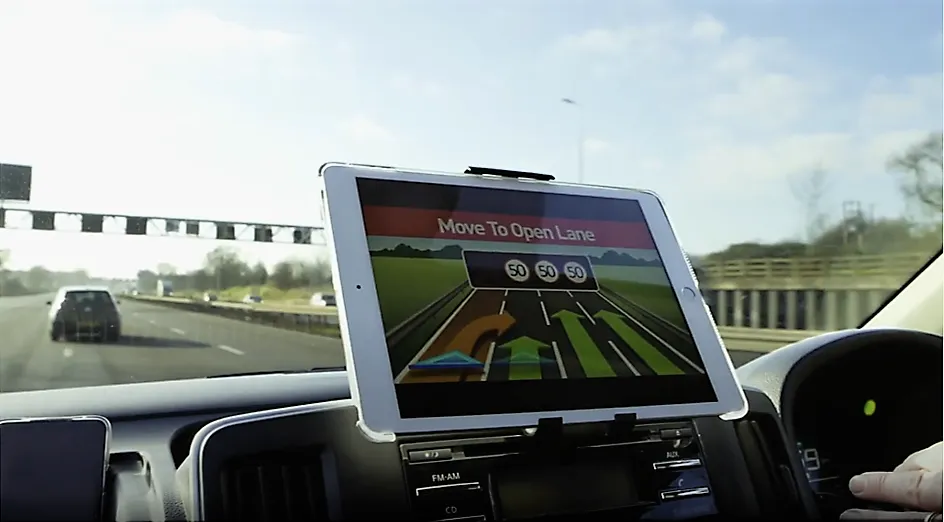UK company Colas will begin building and trialling the first autonomous impact protection vehicle (IPV) in the UK this year in partnership with two US companies, Royal Truck and Equipment and Micro Systems.
Fitted with an electro-mechanical system and fully integrated sensor suite, the autonomous IPV has a leader/follower capability that allows it to follow a lead vehicle, unmanned. GPS position data is transmitted from the leader vehicle to the follower vehicle, which uses the data to follow the exact p
April 20, 2016
Read time: 2 mins
UK company Colas will begin building and trialling the first autonomous impact protection vehicle (IPV) in the UK this year in partnership with two US companies, Royal Truck and Equipment and Micro Systems.
Fitted with an electro-mechanical system and fully integrated sensor suite, the autonomous IPV has a leader/follower capability that allows it to follow a lead vehicle, unmanned. GPS position data is transmitted from the leader vehicle to the follower vehicle, which uses the data to follow the exact path and speed of the leader vehicle at each point along a route. Initially deployed for use in the US military, the technology has been tailored by Royal Truck and Equipment and Micro Systems for the highways industry.
Engineers from Royal Truck and Equipment and Micro Systems will visit the UK to work with Colas engineers to install the new technology on a brand new IPV. A vigorous testing and training regime is in place and the new vehicle will be trialled on a live worksite under closely controlled conditions. All data collected during the trial period will be analysed and incorporated into the roll out of future vehicles across Europe.
Fitted with an electro-mechanical system and fully integrated sensor suite, the autonomous IPV has a leader/follower capability that allows it to follow a lead vehicle, unmanned. GPS position data is transmitted from the leader vehicle to the follower vehicle, which uses the data to follow the exact path and speed of the leader vehicle at each point along a route. Initially deployed for use in the US military, the technology has been tailored by Royal Truck and Equipment and Micro Systems for the highways industry.
Engineers from Royal Truck and Equipment and Micro Systems will visit the UK to work with Colas engineers to install the new technology on a brand new IPV. A vigorous testing and training regime is in place and the new vehicle will be trialled on a live worksite under closely controlled conditions. All data collected during the trial period will be analysed and incorporated into the roll out of future vehicles across Europe.










